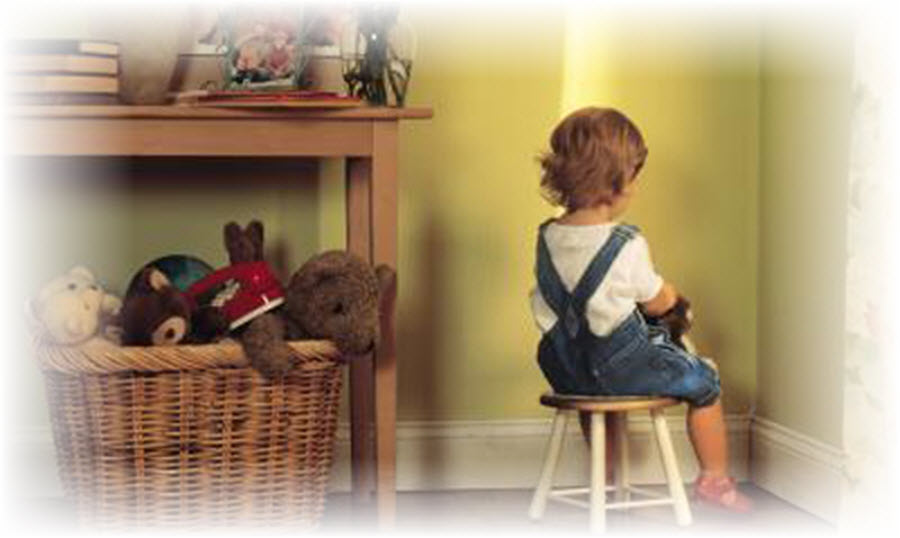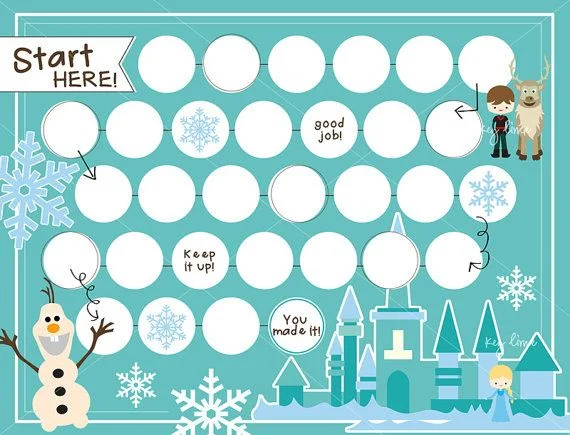If your child is ready for potty training...
(To be ready the child should be able to notice they are eliminating/voiding, such as going off in the corner to "go", asking for diaper change right away, feeling uncomfortable with a full diaper, showing interest in the bathroom, able to request the bathroom- for verbal children).
Usually children are around 2-3 years old. (Developmentally delayed children may be around 4-6 yrs old or older.) Occasionally a child is ready around 18 months old.
-Start putting them in underwear (can put diaper over/under underwear if child makes alot of accidents and its not possible to allow them to wet themselves multiple times per day).
[Note: Some parents let children run naked in the backyard in the summer and when they see them start to go, they rush them to the toilet (like training a puppy). This works for Some kids.]
-Try putting them on the toilet (or baby potty) every 10-30 minutes all day (pick which amount of time works best for you and the child's preschool), routinely (may take days or weeks, especially with kids with special needs it may take months or years).
-Have them sit for about 7-10 minutes at a time on the toilet (use a child's toilet seat on the toilet so the child doesn't fall in!)
-Sing, read a book, watch a movie on a portable DVD player, do puzzles, color a picture, etc. Make it fun! Not a punishment! (If child gets up/won't sit, just hold them on the toilet gently for the count of 10, and let them off of it. Can also try keeping their clothes on at first to get comfortable with it, or try a small baby potty if they are scared of large toilet)
-If they eliminate/void on the toilet, they can immediately get up (don't have to wait the rest of the minutes). Don't forget to wipe! [**Girls should always wipe front to back to prevent infections!!]. Teach child how to wipe themselves. Use wet wipes, then fade out to toilet paper, if you want.
-Give alot of social praise : "Yay! Good job!" high five, hugs, etc "You went on the potty!" and also give a special treat if they "go" that they ONLY get at this time (cupcakes, Popsicle, candy, chocolate, etc).
-Have child flush the toilet, and pull up their underwear (or pull-up)- they may need help, but let them try on their own first, and show them where to put their hands (front and back works better than just the two sides).
- Wash hands!! Even if child didn't void on the toilet, or wipe self they should still learn the importance of washing hands, it gives an extra opportunity to clean hands throughout the day (best way to avoid germs!) plus an opportunity to teach children how to wash hands!
**Note: By about 4 or 5 years old (typical) kids should be able to wipe themselves (may not be super effective if they make a bowel movement, but they should be able to try by themselves first). It may be harder for kids with special needs, if they don't have the right dexterity or can't reach well. Try wet wipes and then move to regular toilet paper.
Additional ideas/information:
-When beginning to introduce potty training, have child watch you (parents) use the toilet. You could even have child (clothed) sit on your lap when you go to the bathroom, so they see what happens.
-Another idea is to always change child's diaper in the bathroom, when you are starting this process.
-And/or have child sit on toilet or go in bathroom whenever they soil their diaper so they start connecting that when they go in their diaper, it should be in the bathroom.
-Have child flush toilet for parents, or when you put the poo from the diaper in there, for example to help them be more a part of the process and for child to see where poo should go!
- Reading potty training kids books like "Elmo uses the potty" or using potty training dolls can be helpful for some kids. Practicing putting dolly/elmo/bear/etc on the toilet is good idea.
-Potty training sticker charts may work for some kids instead of immediate food/candy rewards.
-Use a step stool/bench under child's feet so they don't dangle if child is scared, and also to push off of to make a bowel movement.
-Have child drink ALOT of water/juice during the day, and on the potty during training.
-Have child change their own clothes or clean up puddles if they have an accident- don't punish them, but stress that pee-pee belongs in the potty.
-If child is dry when its potty time and they had no accidents, praise them, and point out they are dry (specific praise) and emphasize pee goes in the potty.
-Teaching boys to "Aim" .. throw some Cheerios in there and have them try to "sink" the O's! (Don't do this if your child likes to put hands in the potty as he might try to reach in and eat them!)
-Boys need to "point"/Aim DOWN, make sure they hold/push themselves downward (if you know what I mean!) or parents can do it for them until they learn how; otherwise pee will go all over the room, and likely on the parents too! (this always happens at least once when potty training!!) :)
-Teach Boys to SIT first for both pee and poop, then teach them to stand up. (Dad can teach them how to use a urinal). Boys also need to learn how to pee without pulling down their pants all the way in public. This should be taught after they are fully potty trained with the sit-down method for the most part.
-For Girls- always wipe every time- front to back!! To avoid infections and UTIs!
-Boys (especially if uncircumcised) should really wipe even for pee as well to prevent infections too- if a little bit of pee is left on their skin and it gets inside, it can cause some infections/UTIs sometimes.
Different kids learn different ways so don't be too discouraged if your child needs another method!
Ask your child's preschool teacher, other parents, therapists, and your child's doctor for more ideas or to come up with a unique specific plan for your child if needed! Remember if your child isn't ready, you can take a break and try again later. Also it may take longer than what your friends may tell you and don't feel discouraged- keep trying or try a different method if something doesn't work!
The ideas above come from various experiences and suggestions from teachers, therapists, parents, etc and different experiences I have had working with different professionals and parents with potty training children, especially special needs children. I hope it helps!
Here's some potty training tips for 3day training- great ideas, though it likely won't work on special needs kids.
http://yourmodernfamily.com/potty-training-in-three-days-2/


















